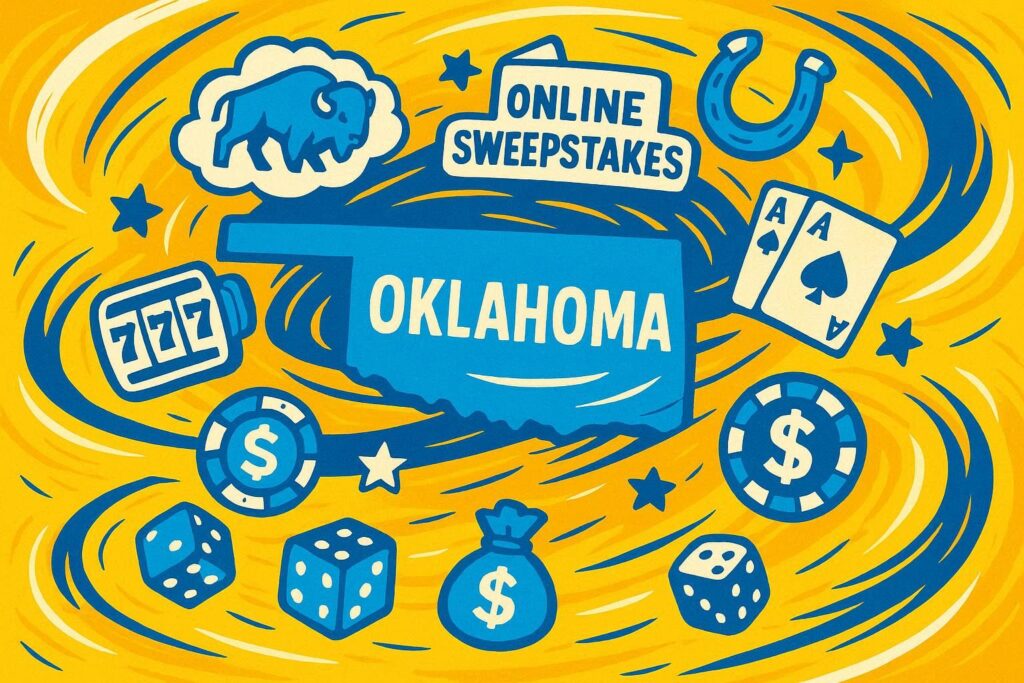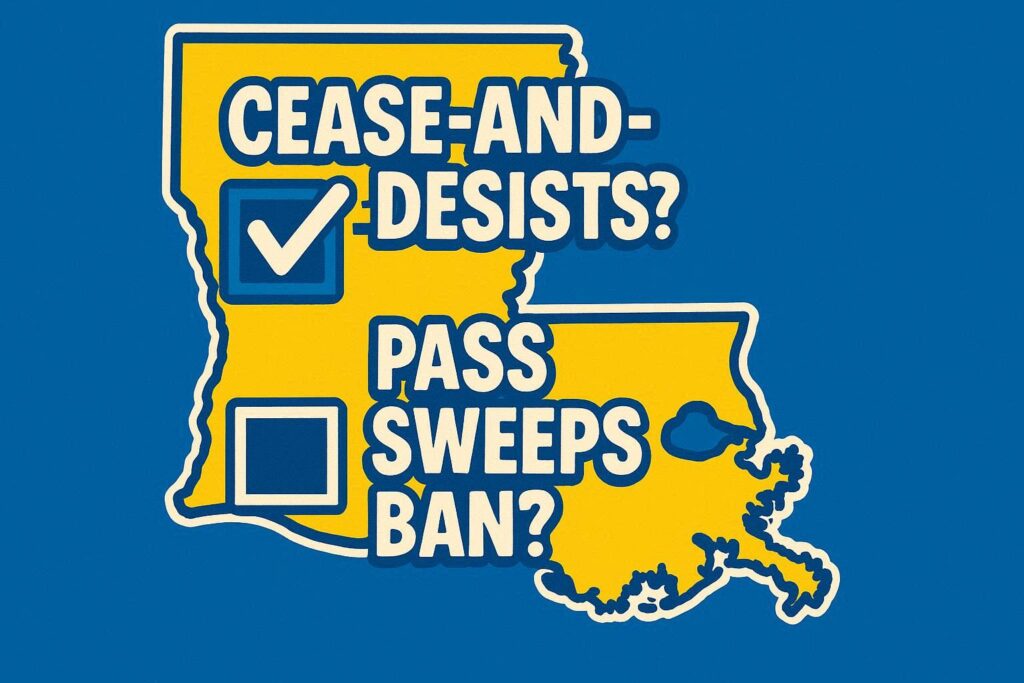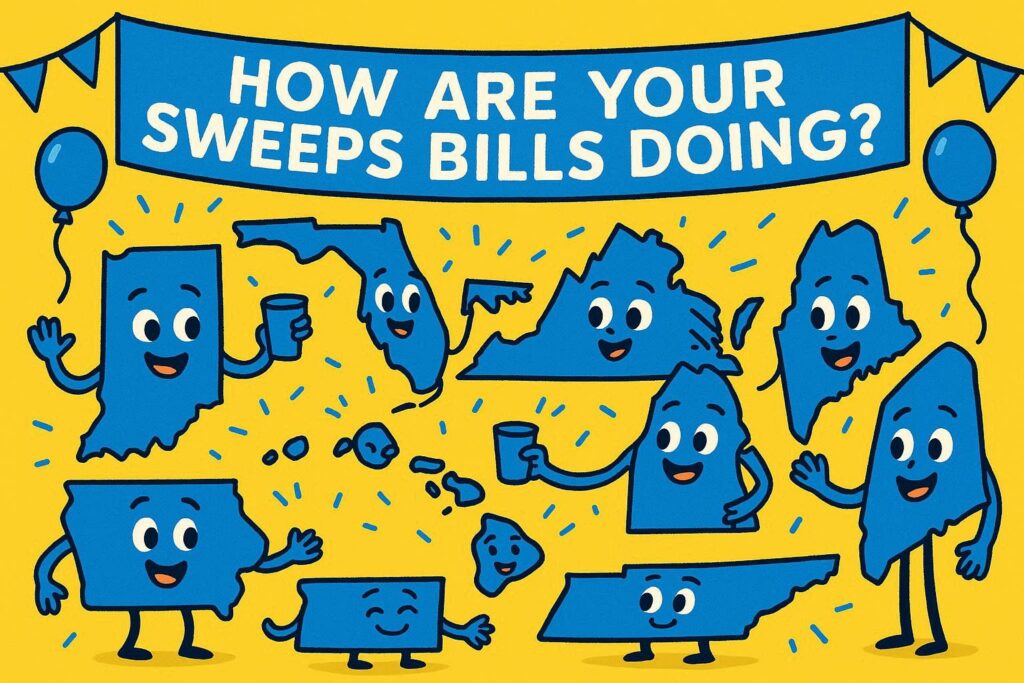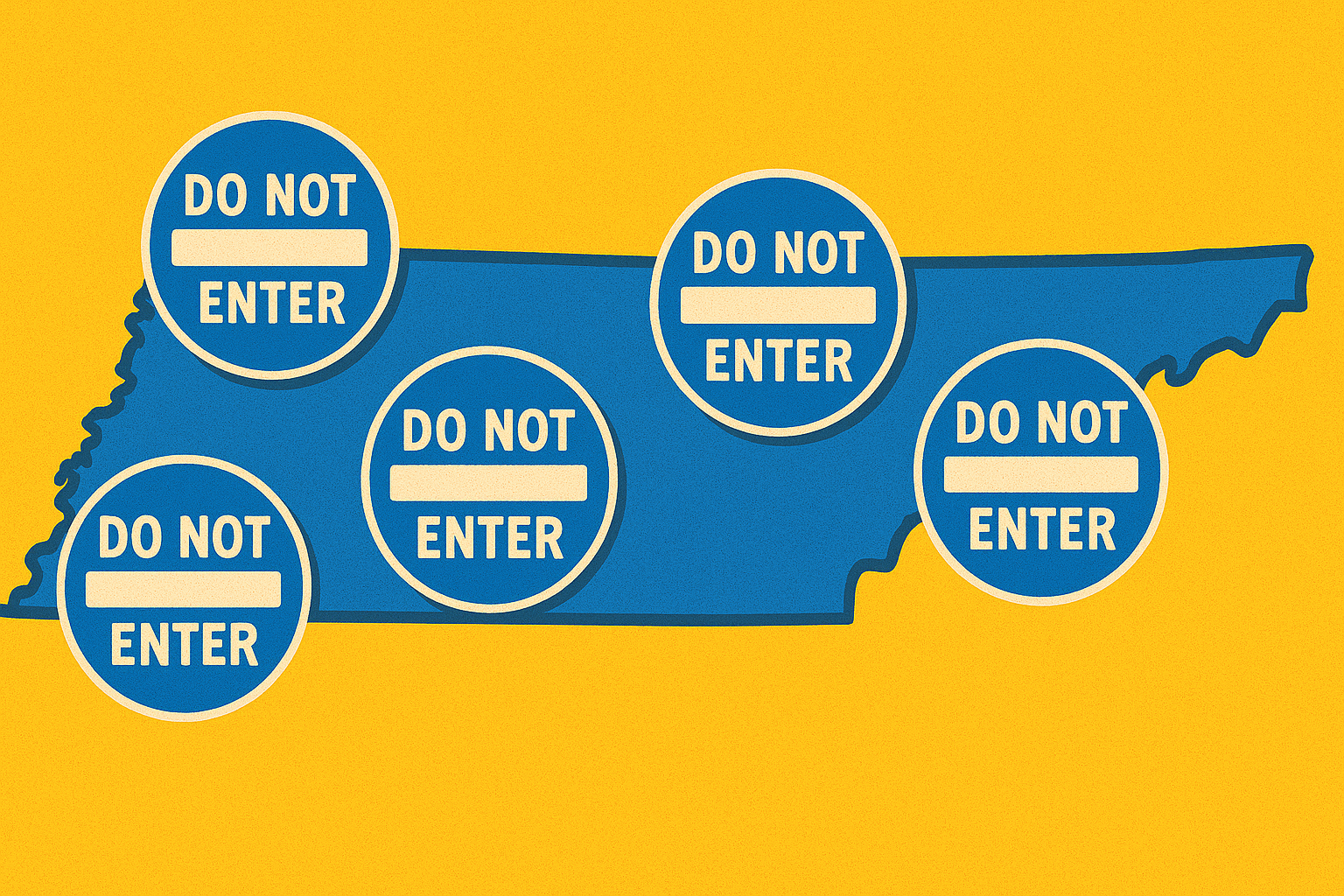A popular brand in the sweepstakes casino industry is electing to pull out of Louisiana, even though it wasn’t among the 42 operators that got cease-and-desist letters in that state in June.
RealPrize is shutting down operations in Louisiana, as well as Delaware and New Jersey, Sweepsy has learned. That trio of states now joins Idaho, Washington, Michigan, Montana, Nevada, New York, and Connecticut as RealPrize’s excluded states.
As of Thursday night, RealPrize had not yet updated its terms and conditions with the three new additions.
Why Louisiana?
Louisiana actually did pass a bill banning online sweepstakes casinos this year, but Gov. Jeff Landry vetoed the legislation. Sweeps advocates briefly claimed victory, before the Louisiana Gaming Control Board proceeded to unload a bevy of 42 cease-and-desist letters to sweeps and offshore platforms operating in the state.
Some of the most notable sweeps brands were among the 42 — VGW (Chumba Casino, LuckyLand Slots, and Global Poker), WOW Vegas, Yellow Social Interactive (Pulsz, Pulsz Bingo), Funzpoints, KHK Games (Clubs Casino, Clubs Poker), and Golden Hearts Games, to name a few.
But RealPlay Tech Inc., the owner of RealPrize, was not included.
Soon after the deluge of cease-and-desist letters, Louisiana Attorney General Liz Murrill published a formal legal opinion supporting the letters and arguing sweepstakes casinos constitute illegal online gambling — and she threatened legal action against any operators still offering their games in Louisiana, including “injunctive relief, restitution, disgorgement of profits, sequestration of asserts, and civil penalties.”
Disgorgement of profits is the biggie, as that essentially means: “We get to take back the money you earned by offering what we consider illegal online games in Louisiana.”
As a result, we have not only seen many of the operators listed on the cease-and-desist roster leave Louisiana, but we’ve also seen operators not on the roster leave — because the potential negatives of being caught in Louisiana and, potentially, being forced to forfeit revenues in that state, to some operators, aren’t worth the benefits of tempting fate in Louisiana for short-term profit gains.
That’s in all likelihood what’s happening here with RealPrize.
A similar situation in Delaware
Although it wasn’t quite the cascade of letters we saw in Louisiana, Delaware also attacked sweeps operators way back in February 2023, when Delaware’s Division of Gaming Enforcement issued a cease-and-desist letter to industry leader VGW, which then pulled out of the state this past April.
So, operators recently leaving Delaware (Zula Casino shut down its sweeps platform in Delaware late last month) are likely following one of a handful of paths:
- They have also received cease-and-desists that just haven’t been publicized.
- They are choosing to follow VGW’s lead and echo their moves (a follow-the-leader approach that isn’t uncommon in the sweeps industry).
- They would rather avoid the headache of a legal problem in Delaware and simply pull out of the state and swallow the likely minimal revenue loss.
A similar trend may ensue in Mississippi, too. That state issued VGW a cease-and-desist in June, and by July 31, VGW had already begun phasing its sweeps play out of the state.
The countdown is on in New Jersey
You’re seeing plenty of sweeps casinos flee from New Jersey (like Chumba Casino, LuckyLand Slots, Global Poker, MyPrize.us, Funzpoints, and Spree) right now because the middle of August marks the beginning of Assembly Bill 5447 becoming law.
On June 30, the New Jersey Legislature approved Assembly Bill 5447, which bans sweepstakes casinos, and sent it to Gov. Phil Murphy. While he hasn’t signed it into law, New Jersey rules state that if the governor doesn’t act on a bill within 45 days while the legislature remains in session, it automatically becomes law through what’s called “pocket approval.”
Well … Aug. 14 marks the 45th day since the bill was passed. Thus, the exodus of sweeps operators. This exodus dates back to right after the bill’s passage, from operators who assumed it would become law. Others waited, likely holding out hope that Murphy might veto the legislation. (Although even that’s no guarantee the state regulator or Attorney General won’t then take action. See, Louisiana.)









